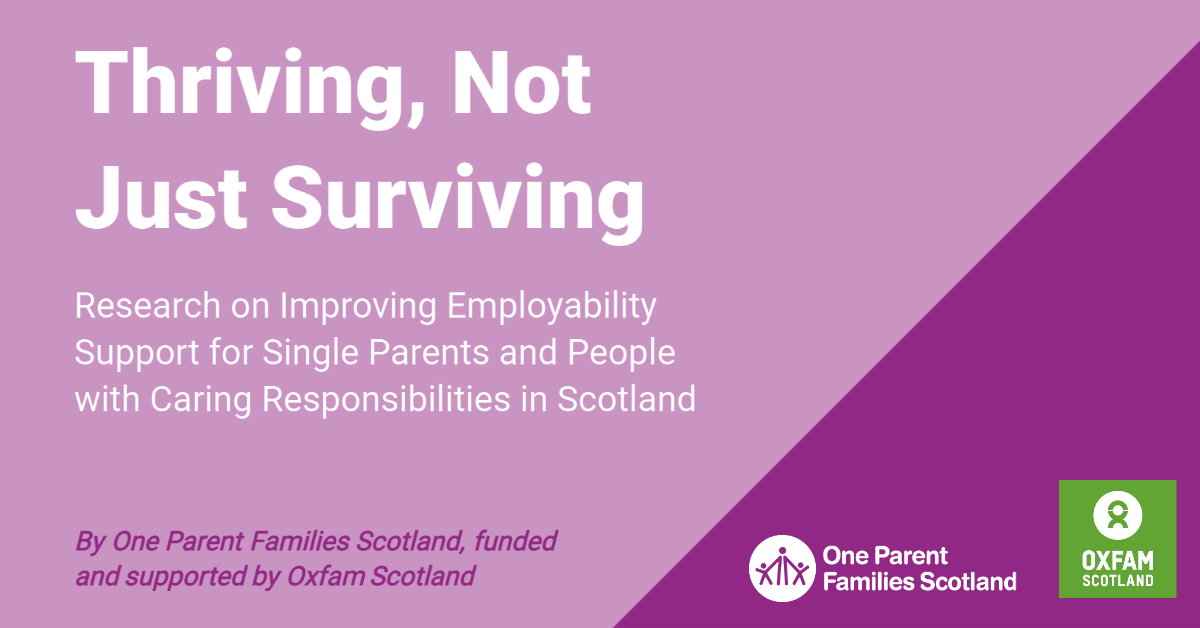Thriving, Not Just Surviving
Last updated: 01/11/2021
Improving Employability Support for Single Parents and Carers in Scotland
The findings
Research carried out for OPFS, funded by Oxfam Scotland, shows that a new approach to employability for single parents and carers is needed. This approach should put access to good-quality, sustainable and rewarding employment at the heart of its design and operations.

Key points
- Given the consistent undervaluation of unpaid care and women’s work more generally, and the fact that 58% of unpaid carers and 91% of single parents are women, an intersectional and gendered lens should inform Scotland’s employability framework. This approach would support women who are single parents and carers into decent paid work and, crucially, to progress within it – thereby supporting them to increase their incomes.
- Fair Start Scotland, the Scottish Government’s flagship employability programme, has taken a
number of welcome and important steps towards a more effective and fairer model. However,
there is more to do to establish a distinct Scottish approach to employability. Furthermore, there
is evidence that some positive elements are not being routinely implemented, and qualitative
research has found a reluctance to invest in more intensive interventions owing to the
programme’s payment structures. - The Scottish Government should continue to use its powers to significantly accelerate delivery of
a distinctive Scottish approach to employability, drawing on the effective and innovative
approaches considered within this report. - There are numerous models for effective employability support. Our research has identified a 10-point framework of key criteria that best meet the needs of single parents and
carers.